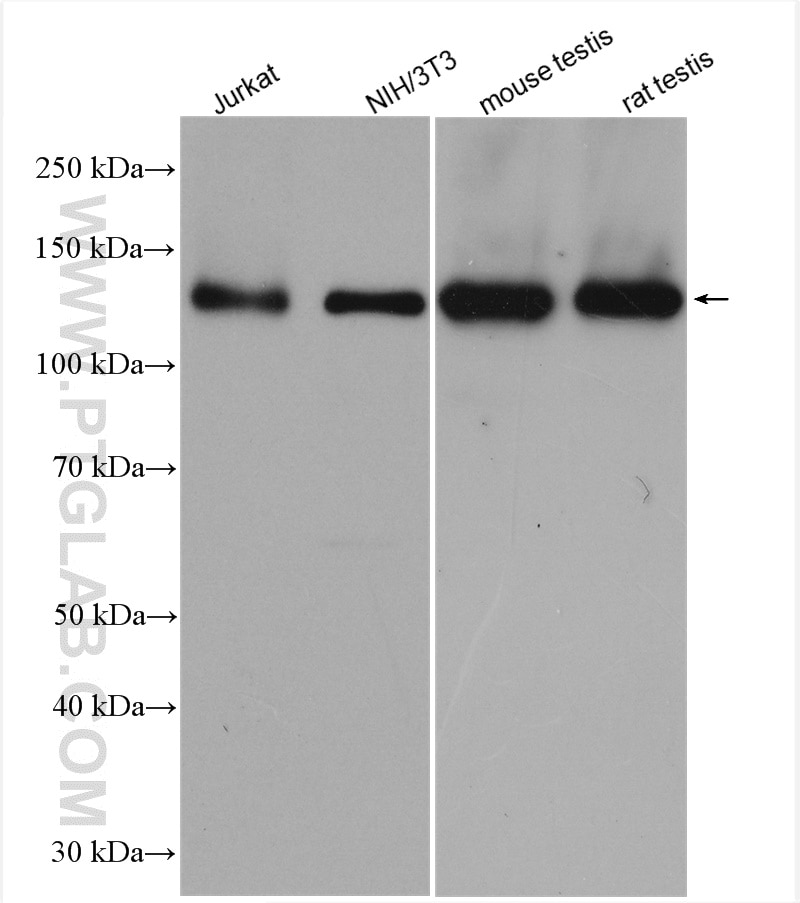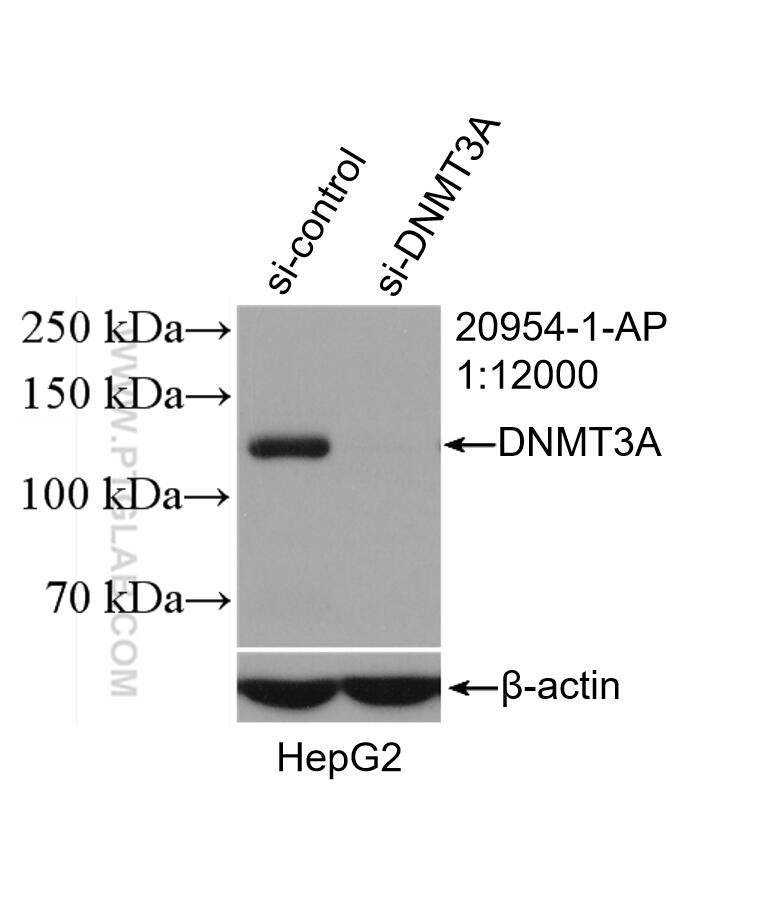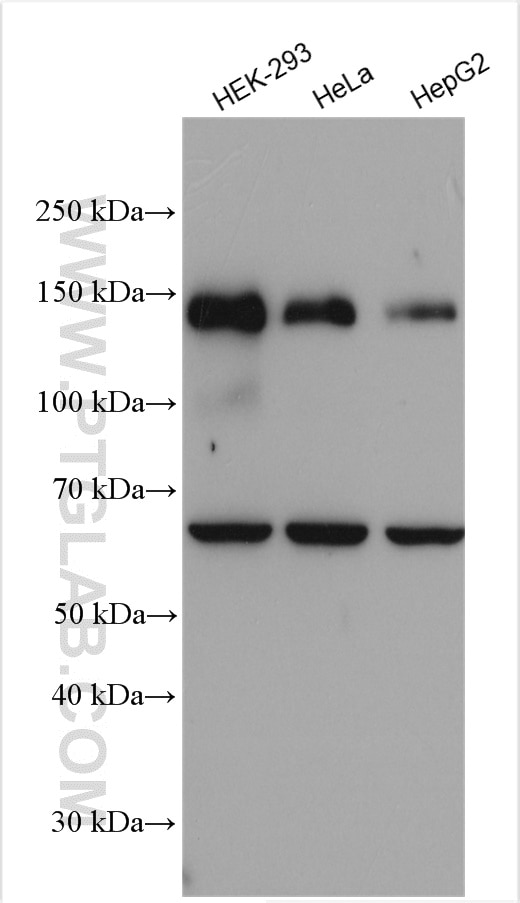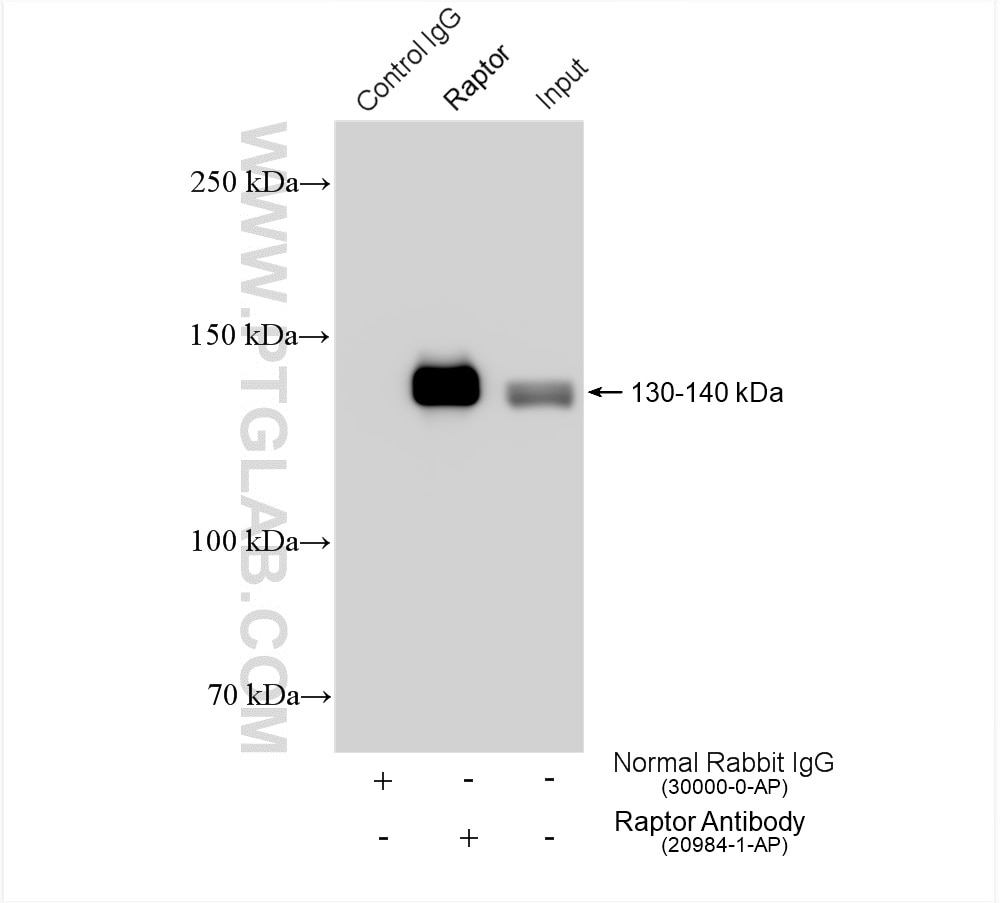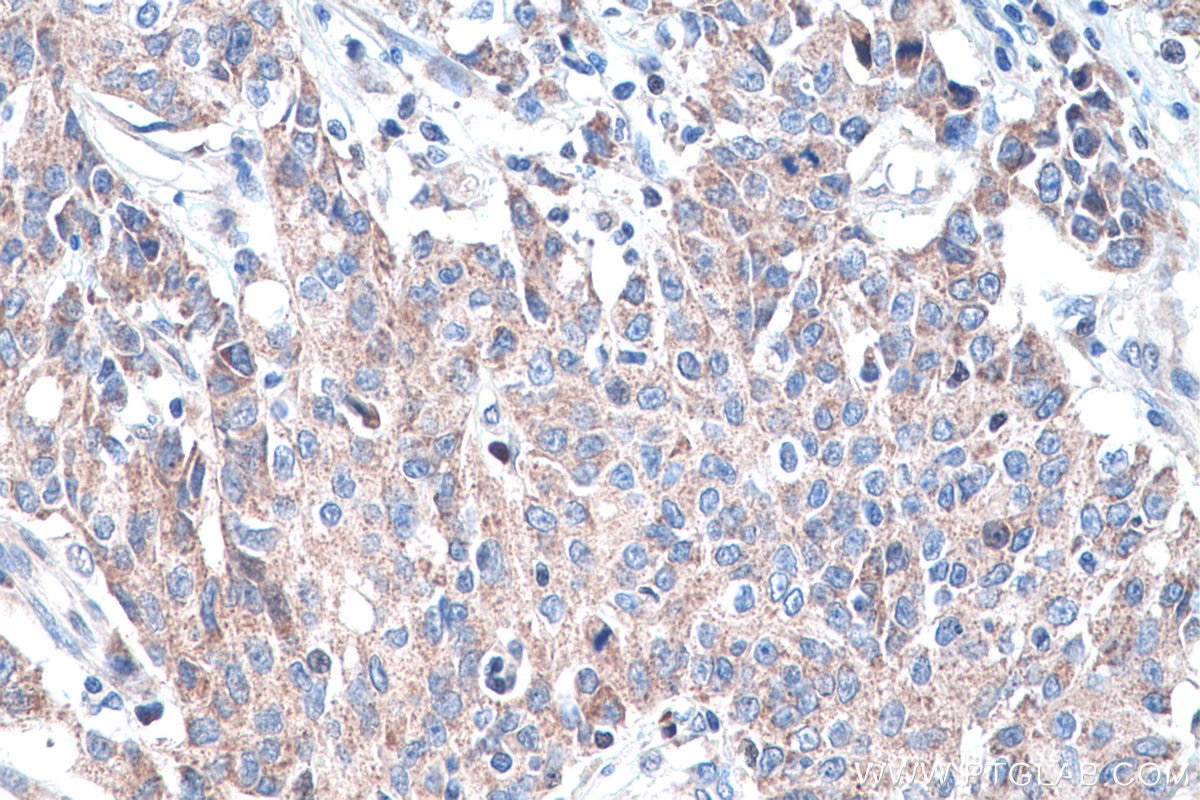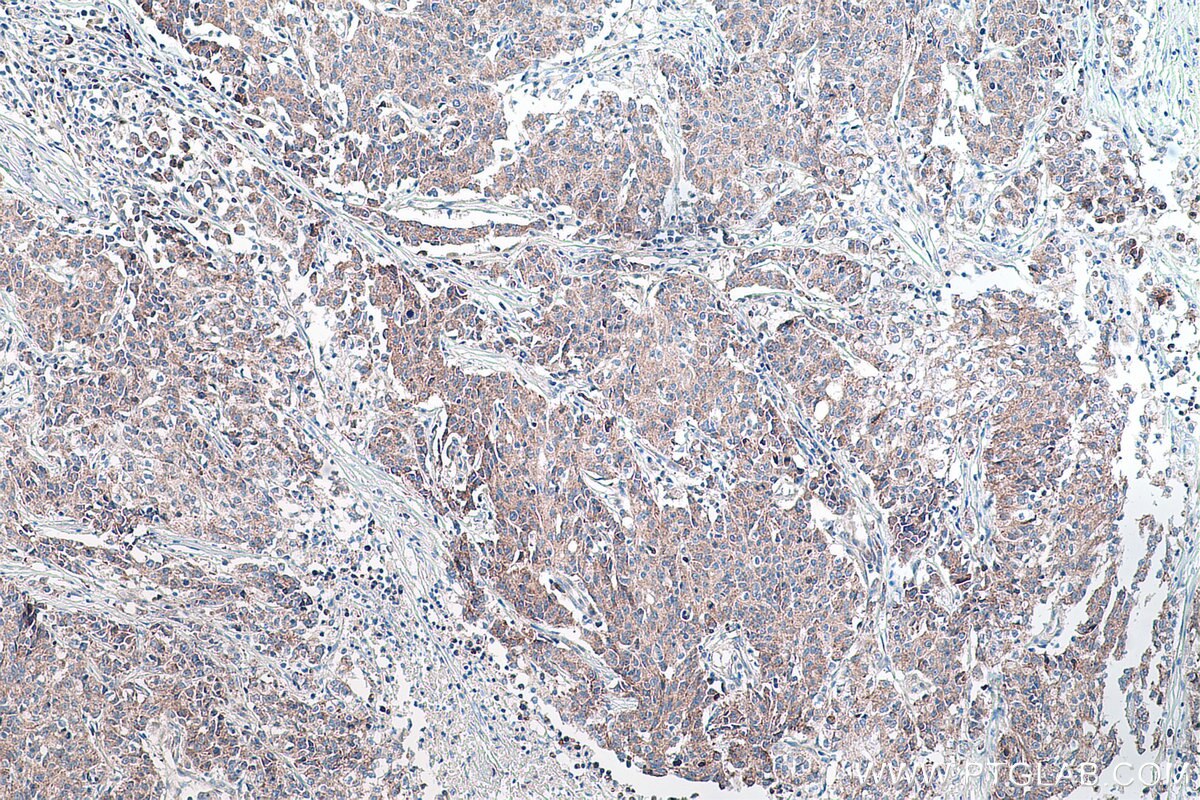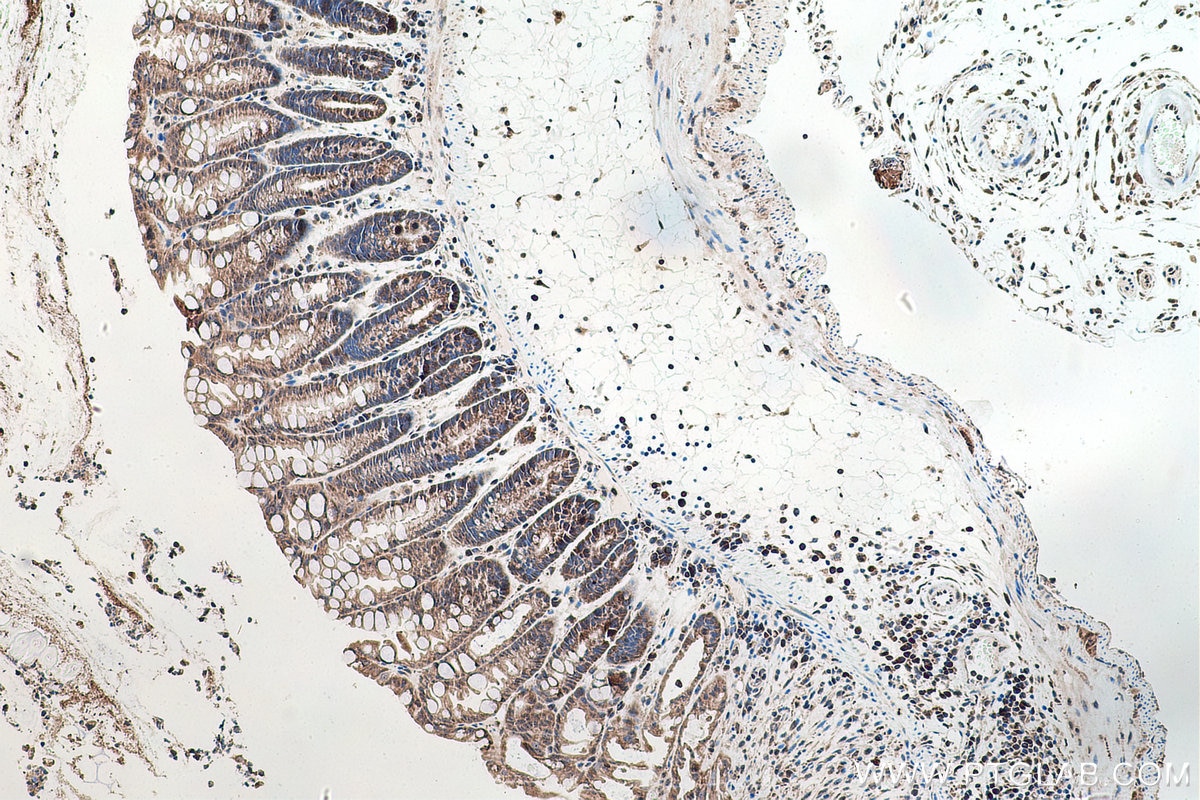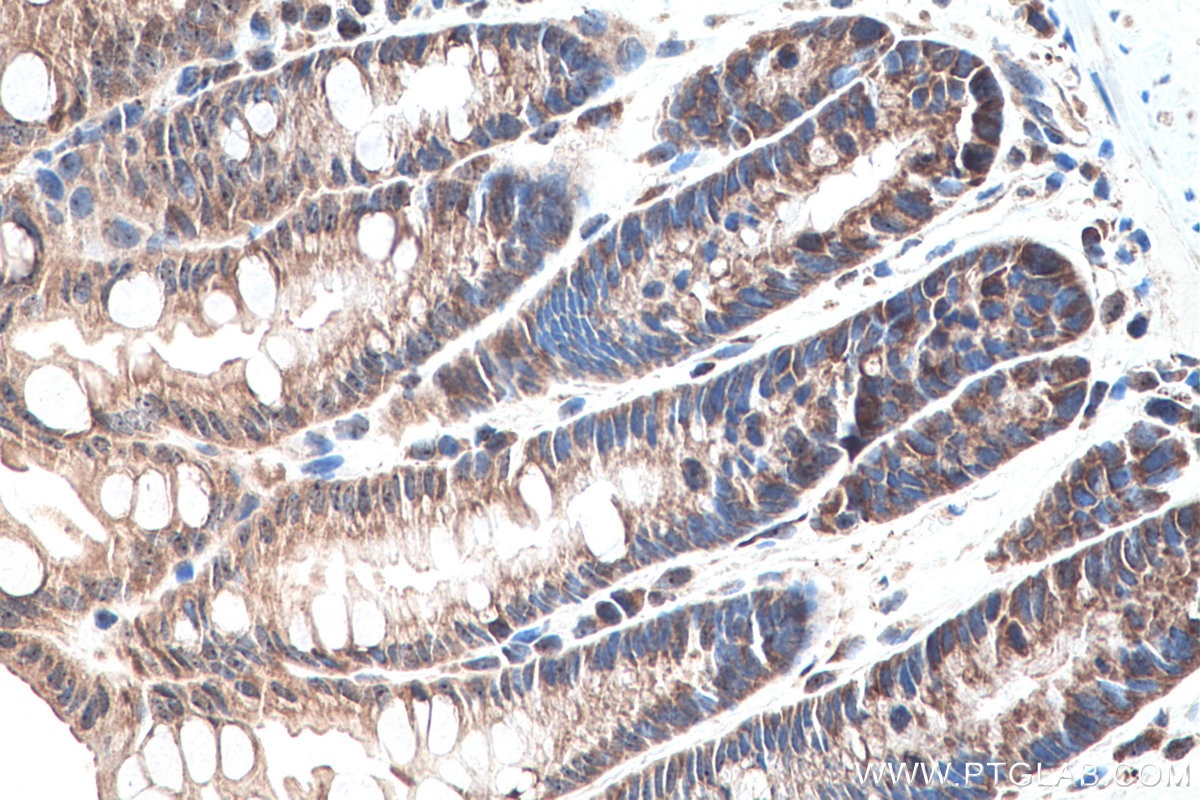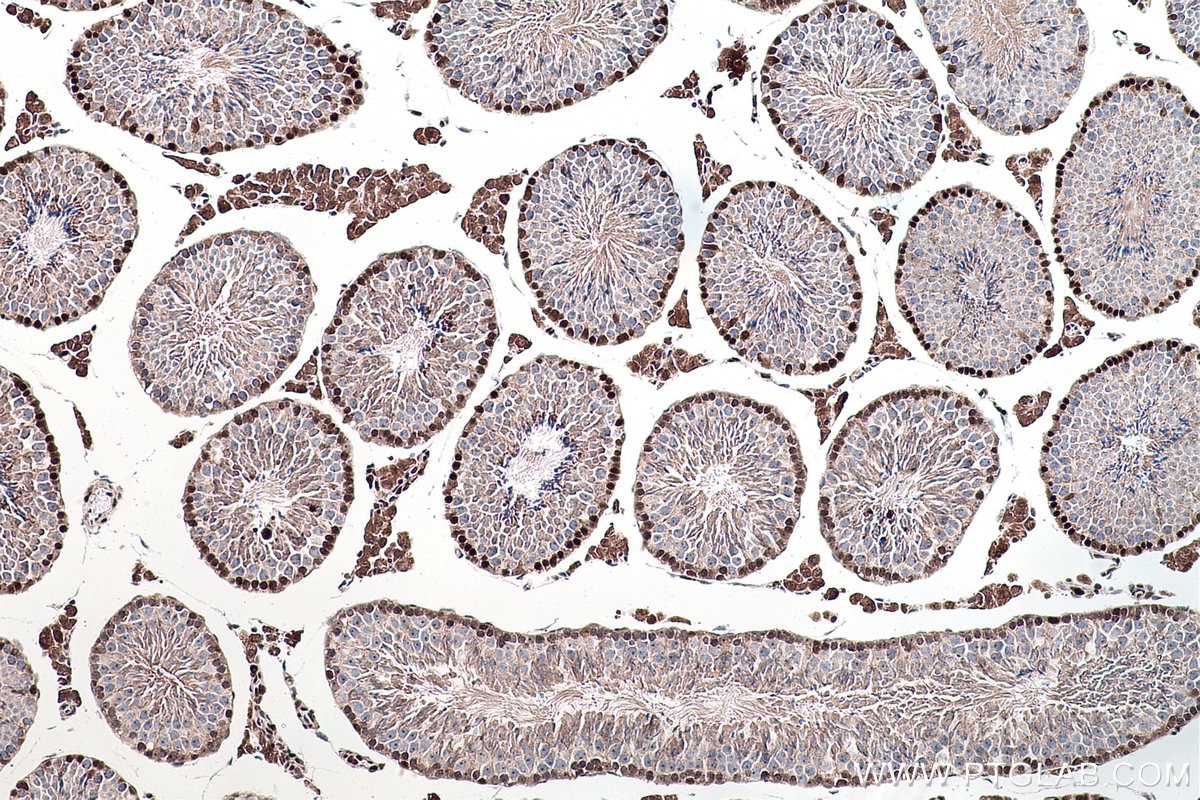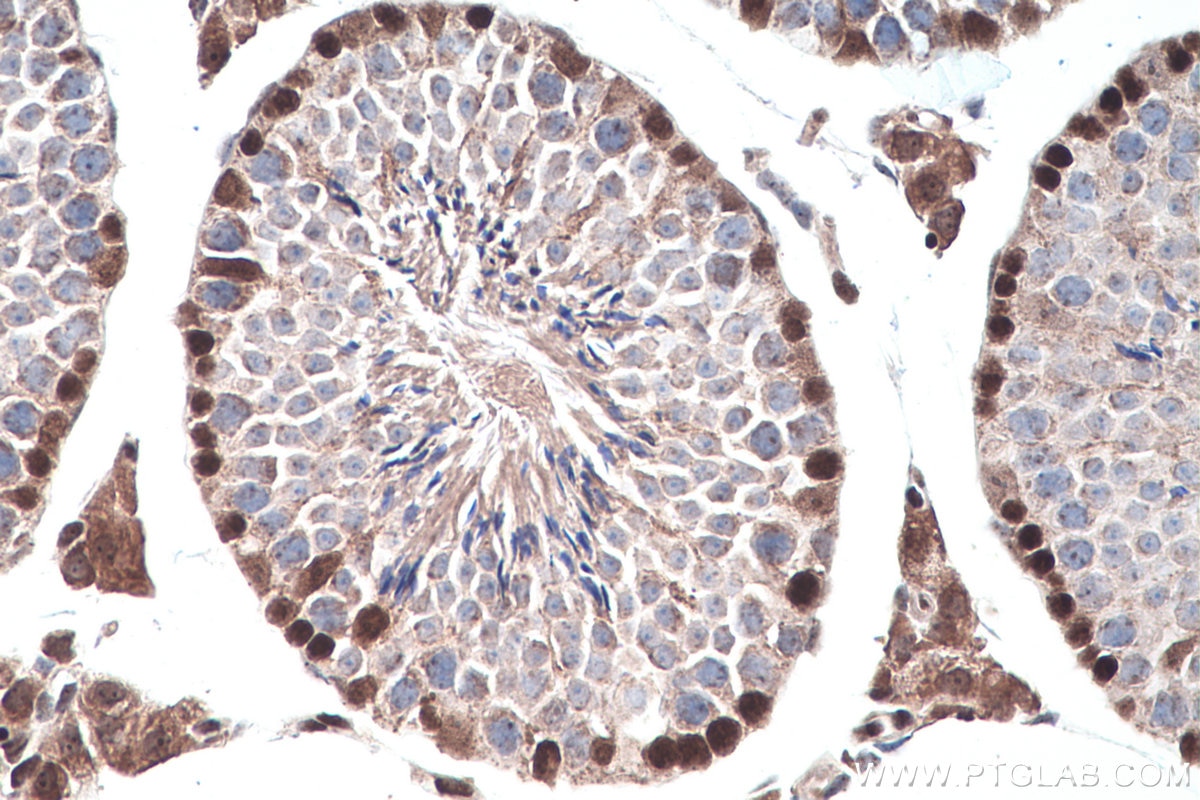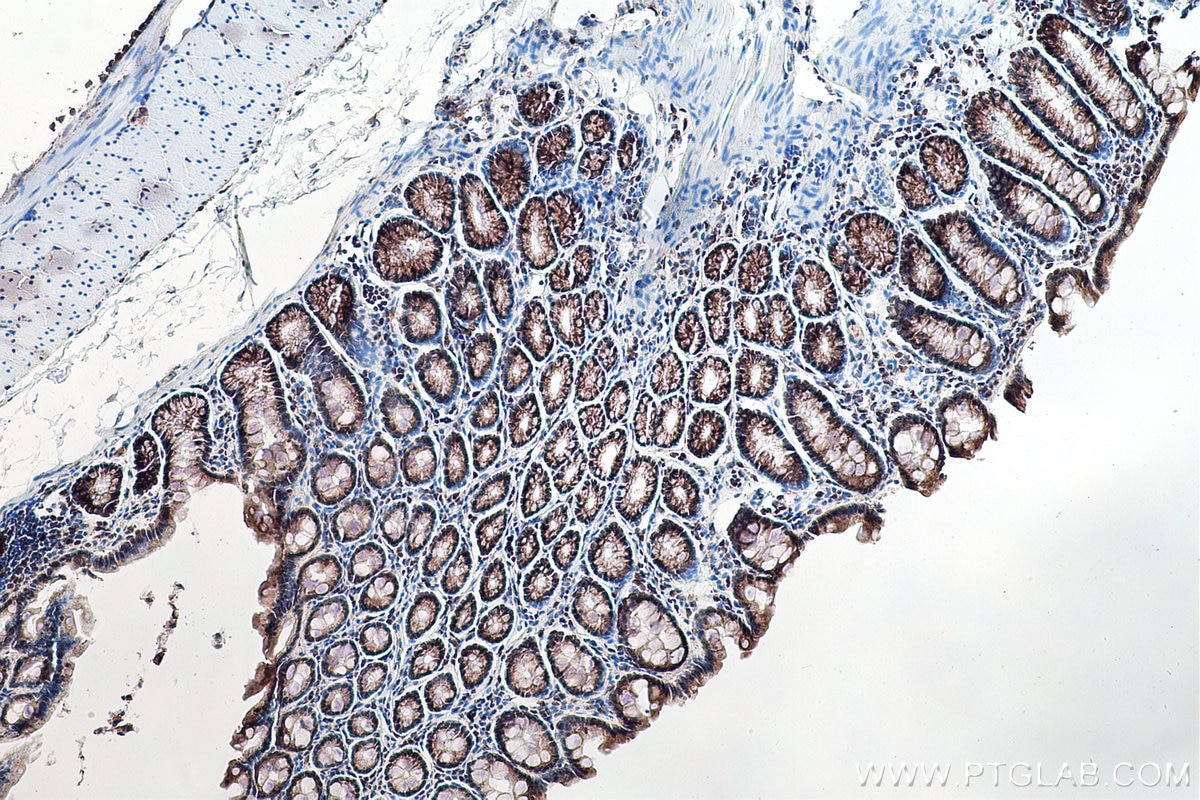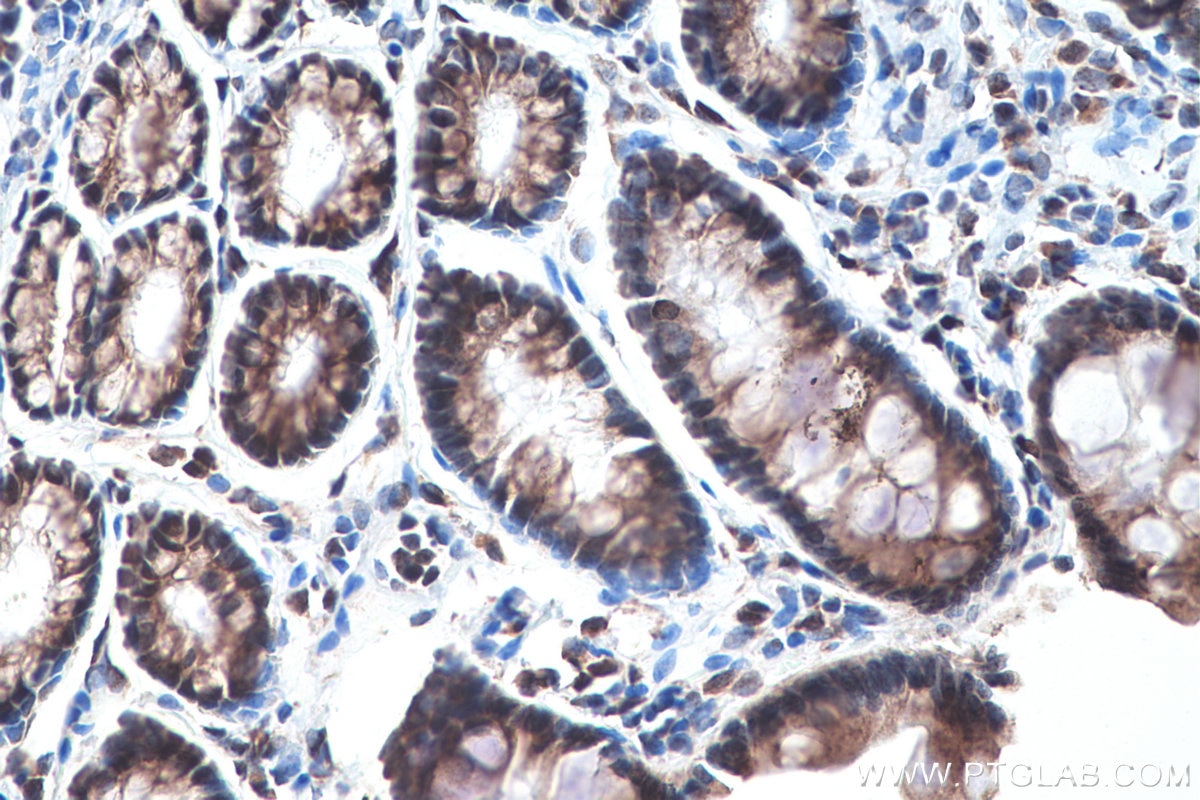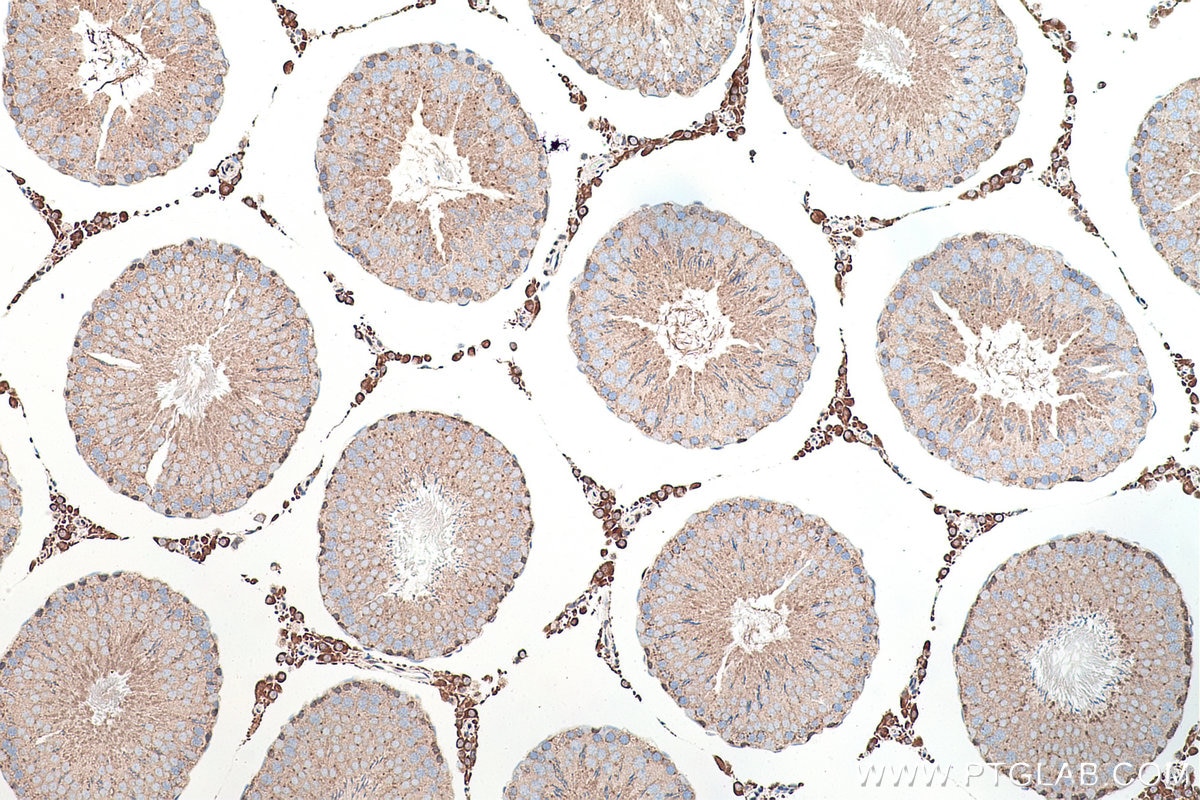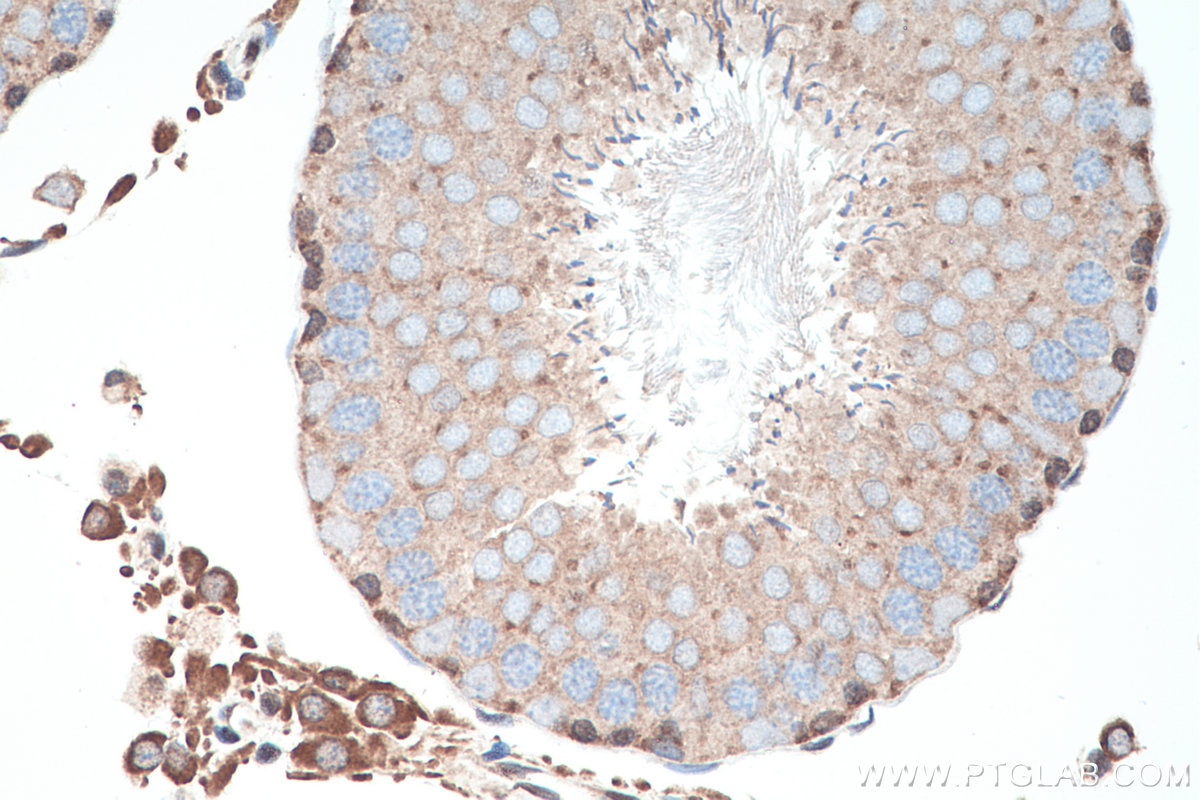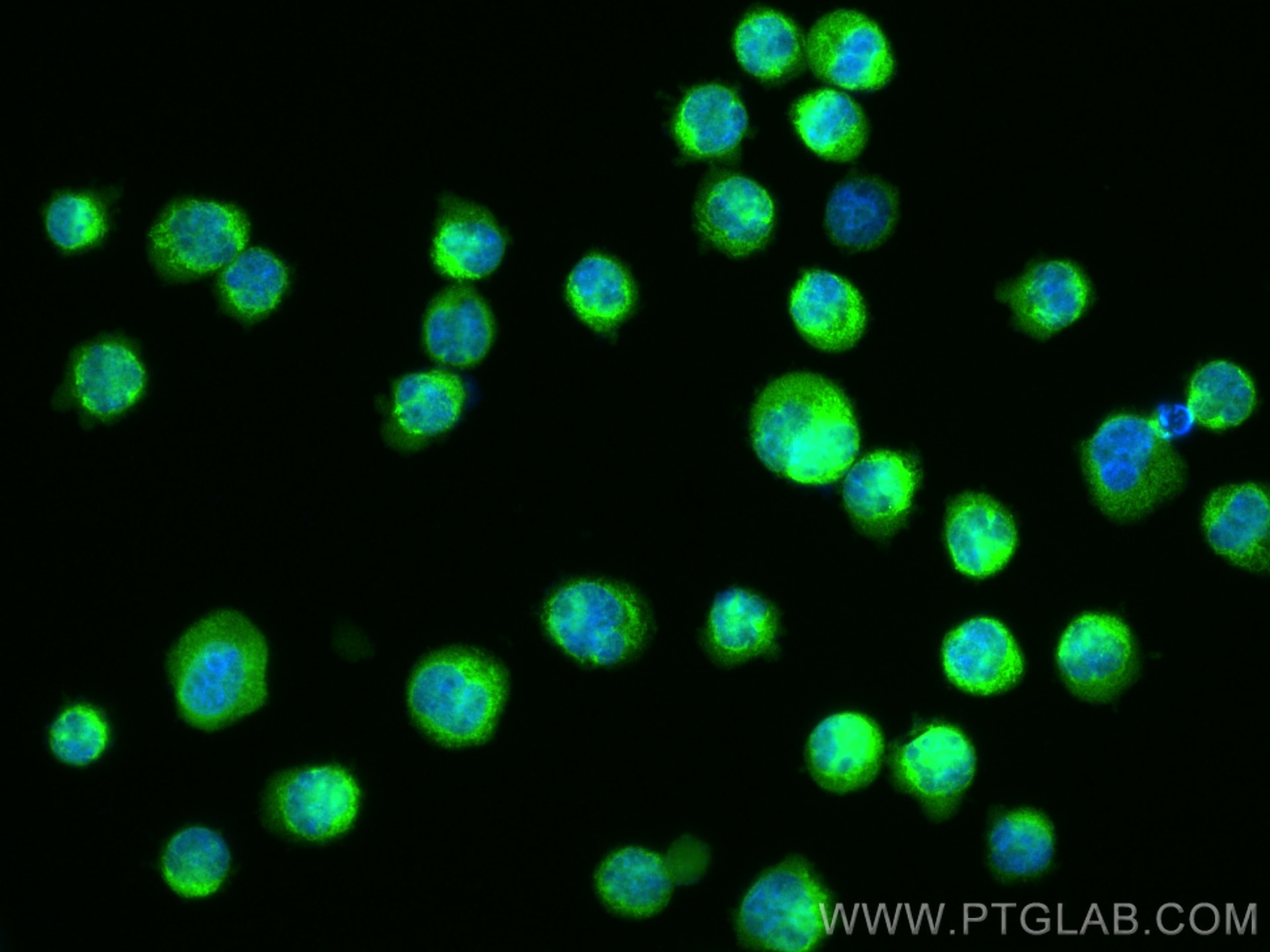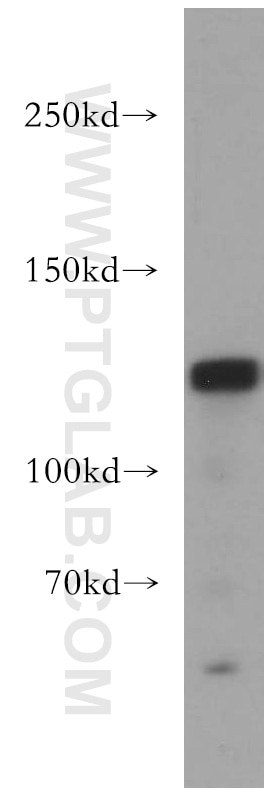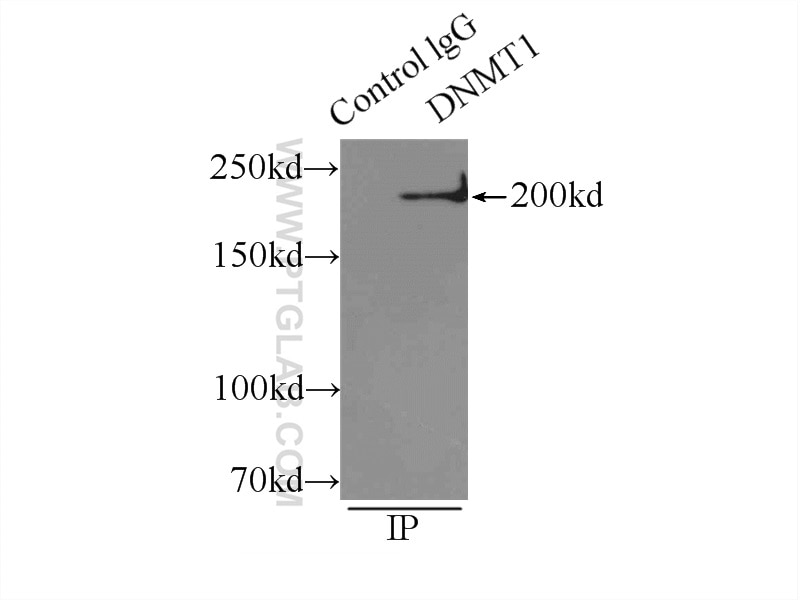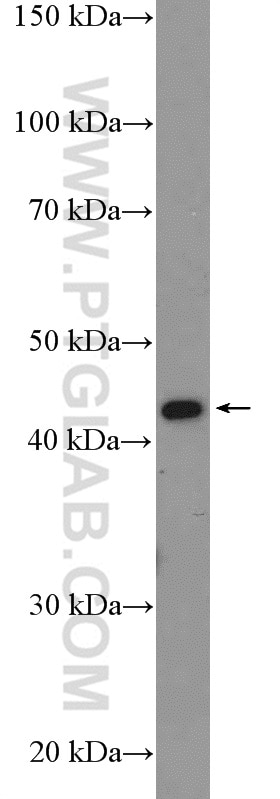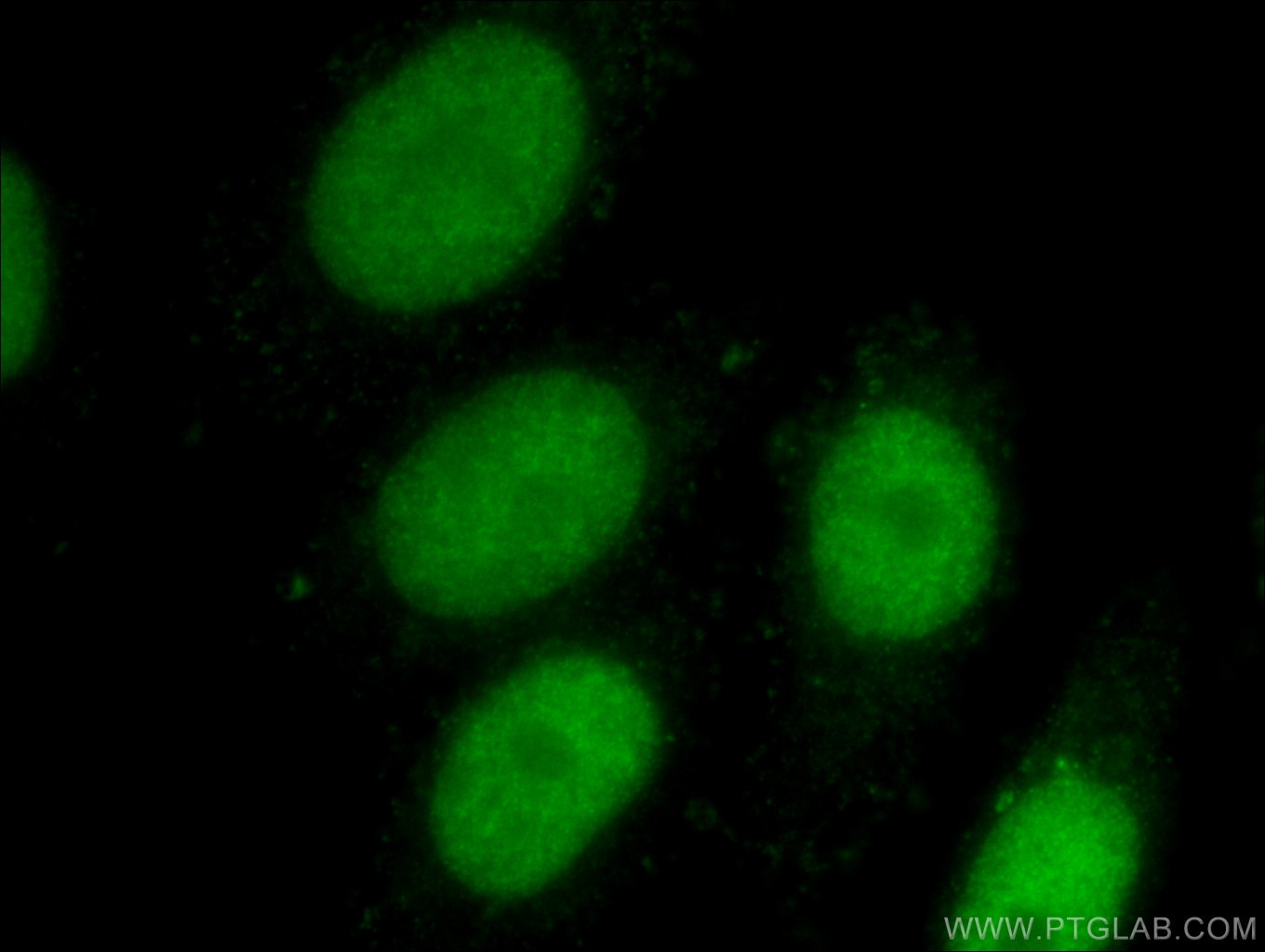- Phare
- Validé par KD/KO
Anticorps Polyclonal de lapin anti-DNMT3A
DNMT3A Polyclonal Antibody for WB, IP, IF, IHC, ELISA
Hôte / Isotype
Lapin / IgG
Réactivité testée
Humain, rat, souris et plus (1)
Applications
WB, IHC, IF/ICC, IP, ChIP, RIP, ELISA
Conjugaison
Non conjugué
N° de cat : 20954-1-AP
Synonymes
Galerie de données de validation
Applications testées
| Résultats positifs en WB | cellules Jurkat, cellules HEK-293, cellules HeLa, cellules HepG2, tissu testiculaire de rat, tissu testiculaire de souris |
| Résultats positifs en IP | cellules HeLa, |
| Résultats positifs en IHC | tissu de cancer de l'estomac humain, tissu de côlon de rat, tissu de côlon de souris, tissu testiculaire de rat, tissu testiculaire de souris il est suggéré de démasquer l'antigène avec un tampon de TE buffer pH 9.0; (*) À défaut, 'le démasquage de l'antigène peut être 'effectué avec un tampon citrate pH 6,0. |
| Résultats positifs en IF/ICC | cellules K-562, |
Dilution recommandée
| Application | Dilution |
|---|---|
| Western Blot (WB) | WB : 1:5000-1:50000 |
| Immunoprécipitation (IP) | IP : 0.5-4.0 ug for 1.0-3.0 mg of total protein lysate |
| Immunohistochimie (IHC) | IHC : 1:1000-1:4000 |
| Immunofluorescence (IF)/ICC | IF/ICC : 1:200-1:800 |
| It is recommended that this reagent should be titrated in each testing system to obtain optimal results. | |
| Sample-dependent, check data in validation data gallery | |
Applications publiées
| KD/KO | See 4 publications below |
| WB | See 31 publications below |
| IHC | See 2 publications below |
| IF | See 4 publications below |
| ChIP | See 3 publications below |
| RIP | See 1 publications below |
Informations sur le produit
20954-1-AP cible DNMT3A dans les applications de WB, IHC, IF/ICC, IP, ChIP, RIP, ELISA et montre une réactivité avec des échantillons Humain, rat, souris
| Réactivité | Humain, rat, souris |
| Réactivité citée | rat, Chèvre, Humain, souris |
| Hôte / Isotype | Lapin / IgG |
| Clonalité | Polyclonal |
| Type | Anticorps |
| Immunogène | DNMT3A Protéine recombinante Ag15111 |
| Nom complet | DNA (cytosine-5-)-methyltransferase 3 alpha |
| Masse moléculaire calculée | 912 aa, 102 kDa |
| Poids moléculaire observé | 120-130 kDa |
| Numéro d’acquisition GenBank | BC043617 |
| Symbole du gène | DNMT3A |
| Identification du gène (NCBI) | 1788 |
| Conjugaison | Non conjugué |
| Forme | Liquide |
| Méthode de purification | Purification par affinité contre l'antigène |
| Tampon de stockage | PBS avec azoture de sodium à 0,02 % et glycérol à 50 % pH 7,3 |
| Conditions de stockage | Stocker à -20°C. Stable pendant un an après l'expédition. L'aliquotage n'est pas nécessaire pour le stockage à -20oC Les 20ul contiennent 0,1% de BSA. |
Informations générales
DNA methylation in vertebrate animals is an epigenetic modification that is important for embryonic development, imprinting, and the inactivation of X chromosomes. DNA methylation is catalyzed by a family of DNA methyltransferases (DNMTs) that include the maintenance enzyme DNMT1 and de novo methyltransferases DNMT3a and DNMT3b. The overexpression of DNMT1, DNMT3a, and DNMT3b has been reported in various malignancies, including gastric, urothelial, and lung cancers, and may be related to tumorigenesis, tumor progression, and poor survival. Two isoforms of DNMT3a exist: the full-length DNMT3a, and the shorter form DNMT3a2 which lacks the N-terminal fragment. DNMT3a is expressed ubiquitously at low levels, while DNMT3a2 is specially expressed at high levels in embryonic stem cells and shows restricted expression in tissues known to undergo de novo methylation including testis and ovary. This antibody was raised against the N-terminal region of human DNMT3a. It is expected to detect the 120-130 kDa DNMT3a but not 72-100 kDa DNMT3a2.
Protocole
| Product Specific Protocols | |
|---|---|
| WB protocol for DNMT3A antibody 20954-1-AP | Download protocol |
| IHC protocol for DNMT3A antibody 20954-1-AP | Download protocol |
| IF protocol for DNMT3A antibody 20954-1-AP | Download protocol |
| IP protocol for DNMT3A antibody 20954-1-AP | Download protocol |
| Standard Protocols | |
|---|---|
| Click here to view our Standard Protocols |
Publications
| Species | Application | Title |
|---|---|---|
Mol Cancer CircNTNG1 inhibits renal cell carcinoma progression via HOXA5-mediated epigenetic silencing of Slug
| ||
Protein Cell Epigenetic integrity of paternal imprints enhances the developmental potential of androgenetic haploid embryonic stem cells. | ||
Cell Mol Biol Lett miR-29b-3p regulates cardiomyocytes pyroptosis in CVB3-induced myocarditis through targeting DNMT3A | ||
Cell Biol Toxicol Hypermethylation of microRNA-497-3p contributes to progression of thyroid cancer through activation of PAK1/β-catenin. | ||
J Mol Cell Cardiol LncRNA NKILA regulates endothelium inflammation by controlling a NF-κB/KLF4 positive feedback loop. |
